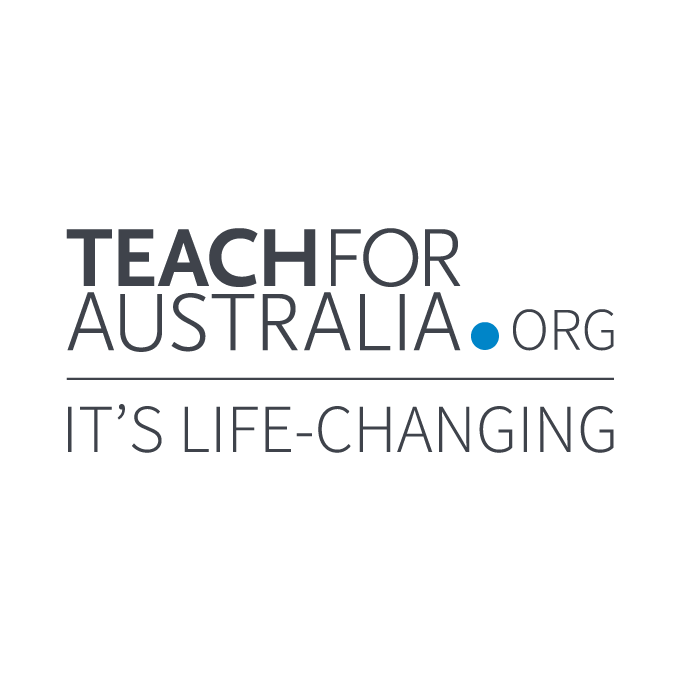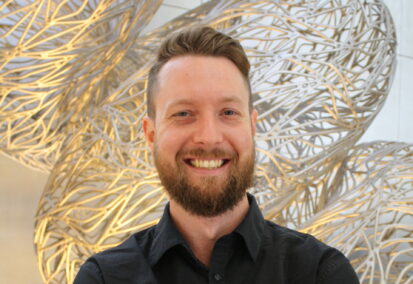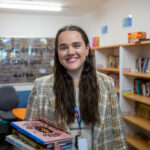Teach For Australia believes in the potential of every child.
In their right to an education that can unlock choice, in their chance for a future of opportunity and prosperity, and their ability to pursue their dreams.
However, large, entrenched gaps in educational opportunity exist from early childhood through to adulthood.
Our system is failing up to one in three children and young people, and too often these gaps grow as students get older.
Since 2009, Teach For Australia has led a community of change-makers, dedicated to creating a future of educational equity for Australian children.
As our latest Impact Report reveals, 84% of TFA Alumni continue to work in the education sector beyond their program completion, helping ensure more children and young people can access the life-changing education and opportunities they deserve.
One such leader is Joel Hohn, principal of Owen Springs School within the Alice Springs Youth Detention Centre in the Northern Territory.
Previously an engineer, Mr Hohn’s pathway to teaching was via Teach For Australia’s Leadership Development Program which took him from Sydney to Katherine High School in 2012 for a two-year placement.
He then worked overseas for several years and within the NT Department of Education before stepping back into the school setting in 2020 – albeit not in the traditional sense.
“When people ask me where I work, I say that I work in this amazing school with an amazing team – the fact that it’s in a juvenile detention centre is secondary,” Mr Hohn said.
Since becoming principal less than three years ago, Mr Hohn has overseen a significant decrease in the number of classroom incidents at Owen Springs School while attendance and engagement have improved.
He said the school had worked hard to re-engage students in what education can be for them – with the hope they will remain engaged when they transition out of the centre, whether that is in days or years.
This includes a focus on school programs that connect the young people to services and networks, such as cultural programs led by Aboriginal Elders and community members, life skills, psychology and health programs, and sport.
Mr Hohn says the school’s focus on trauma-informed practice and positive behaviour support had also proved powerful for the students.
“In learning about trauma and how it could be impacting our students we engaged with lots of different resources. From local Aboriginal health organisations, to doing our own research, we started to get an insight into what our students’ behaviours were communicating to us,” he said.
“Over time we developed our own trauma informed principles for the school which outline how we work with our students. This was created from the research we had been doing as a team and our own empirical evidence of what was working.
“We’ve also spent a lot of time on positive behaviour support, investing a lot of time into teaching expectations – you frontload, putting in effort at the start to stop something happening at the end.
“It has really set the tone of the centre, and from there, you can do a lot more once the young people feel safe and secure to take the risks with their learning.”
The NT Office of the Children’s Commissioner October 2021 Alice Springs Youth Detention Centre Monitoring Report stated that “the majority of young people interviewed reported enjoying school and were able to identify specific areas of learning they enjoyed”.
“The education provided by Owen Springs School appears to be a positive environment for young people to reengage in education and to connect with supports outside of the detention centre,” the report stated.
Mr Hohn said in his 11 years in the education sector, he had realised that one of the most basic teaching concepts was also the most true.
“Being in this setting with young people who are disengaged, this context has reinforced to me that every young person wants to learn – it’s about finding the right way of delivering it and the right level. It sounds so simple but it’s something I’m constantly trying to reiterate,” he said.
“If they seem like they don’t want to learn, there’s always something going on – every young person wants to learn and be in school, we just need to make sure we put the right conditions around them so that can shine through.”





